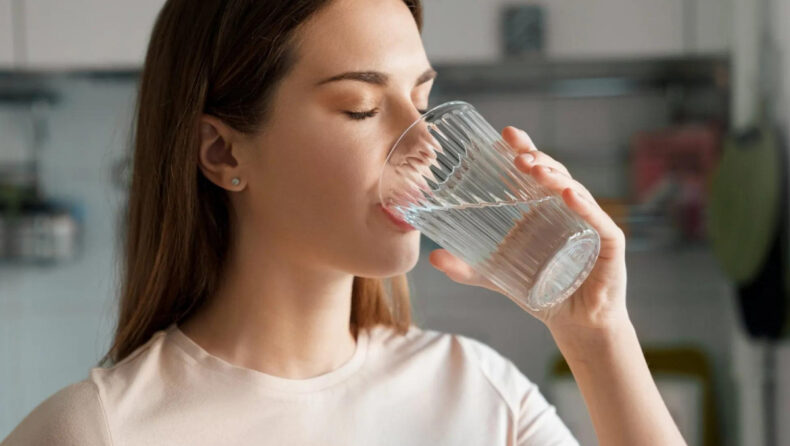During the Fourth of July weekend, Ashley Summers, a 35-year-old mother of two from Indiana, experienced a severe sense of dehydration while enjoying time at Lake Freeman with her family. Despite her efforts to stay hydrated, she found it difficult to quench her thirst.
In an attempt to alleviate her discomfort, Ashley consumed an unusually large quantity of water within a brief period. Tragically, this led to her collapse and eventual passing due to water toxicity, an uncommon but serious outcome resulting from excessive and rapid water intake.
According to her brother Devon Miller, as reported by New York Post, it was mentioned that she consumed four water bottles within a span of 20 minutes. To put it in perspective, an average water bottle contains around 16 ounces, totaling 64 ounces of water in that short timeframe. This amount is equivalent to half a gallon, which is typically recommended as the daily water intake.
As the trip came to a close, Summers started experiencing a sense of insatiable thirst, coupled with complaints of lightheadedness and a persistent headache, as shared by her family.
Upon her return home, Summers collapsed in her garage and was subsequently rushed to IU Health Arnett Hospital. Despite medical efforts, she did not regain consciousness. The medical team informed the family that Summers’ passing was attributed to water toxicity.
What is Water Toxicity?
Water toxicity, alternatively referred to as water poisoning or water intoxication, emerges when an excessive amount of water is ingested within a brief timeframe or when the kidneys retain an unusually high volume of water due to underlying health factors. Indicators of water toxicity encompass a sense of overall malaise, accompanied by occurrences of muscle cramps, discomfort, queasiness, and headaches.

As per insights from health professionals, individuals can experience pronounced dehydration, particularly in the summer months or when engaged in outdoor activities or frequent exercise. Consequently, if an individual over consumes water within a short timeframe, an abrupt imbalance can arise with an excess of water in the body and an insufficient presence of sodium. When dealing with dehydration, the recommended approach involves consuming beverages containing electrolytes, sodium, and potassium to help restore balance.
Statements
“It’s a relatively uncommon occurrence,” stated Dr. Alok Harwani, a medical practitioner at the hospital, during an interview with WLFI. “Our primary concern revolves around the rapid consumption of excessive water. The kidneys have a limited capacity to process approximately one liter of water per hour.”
The physician recommended a prudent approach for extended periods spent outdoors in warm conditions: alongside plain water, incorporating electrolyte-rich items such as fruits or beverages like Gatorade into your consumption can be beneficial. This practice aids in preserving the equilibrium between water and sodium levels in the bloodstream.
“Signs to remain attentive include a sense of disorientation, pronounced fatigue, or excessive weariness,” he elaborated. “Occasionally, individuals might notice the onset of a mild headache or a general feeling of being unwell. These symptoms could potentially indicate the initial stages of water intoxication . If genuine concern arises regarding your own well-being or that of a family member, and apprehensions about water toxicity arise, it is important to promptly contact 911 or proceed to the emergency room without delay
In a separate recent incident, a Canadian TikTok user found herself hospitalized due to water toxicity after adhering to the ’75 Hard’ challenge by consuming four liters of water daily for a duration of 12 days. Michelle Fairburn took to social media to recount her experience, expressing concerns about potential water toxicity. This condition arises when an individual ingests “more than three to four liters of water in a short span,” as outlined in a report by New York Post.
The ’75 Hard’ challenge entails a rigorous regimen where participants are required to adhere to a disciplined diet, engage in two 45-minute workout sessions, capture a progress photograph, consume a gallon of water, and read 10 pages from a book daily.
The challenge’s stringent nature demands a restart if any components are missed. It is paramount to exercise caution and avoid participating in challenging activities that could potentially jeopardize one’s well-being. If considering experimentation, seeking approval from a medical professional is essential to ensure safety.













